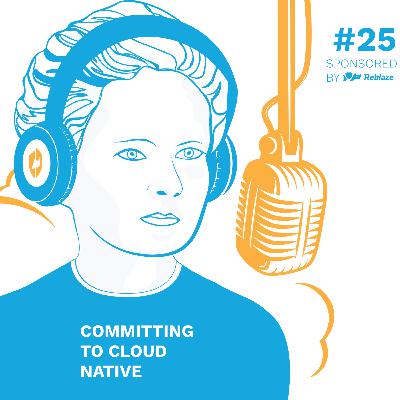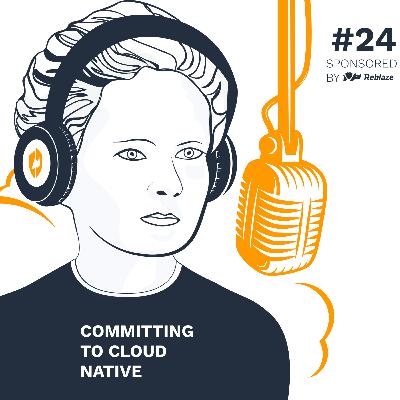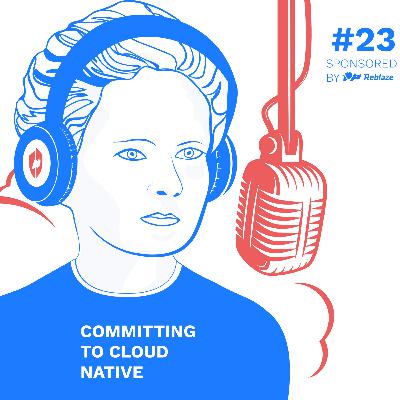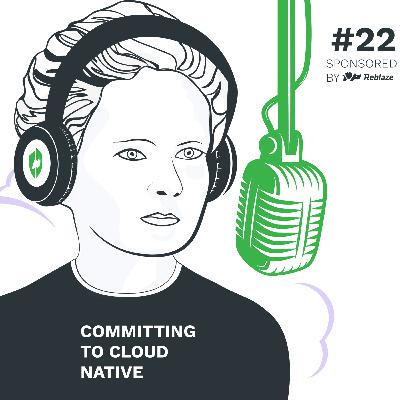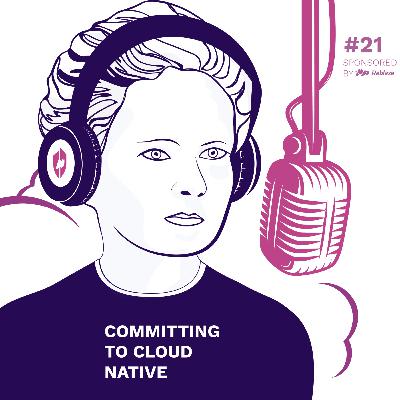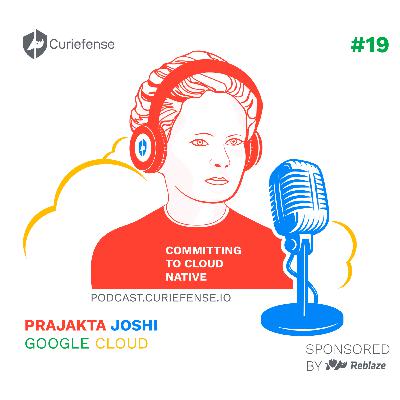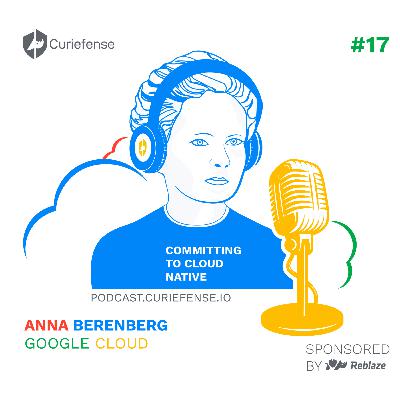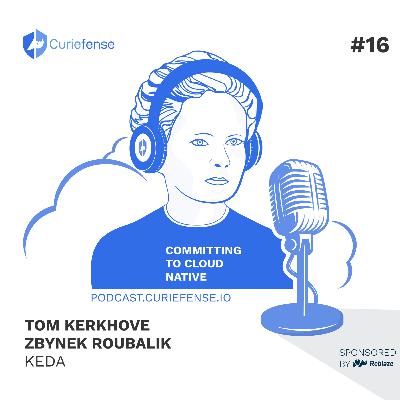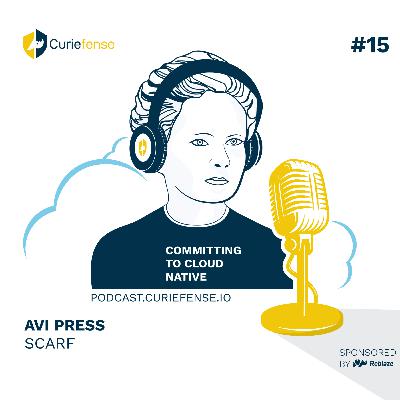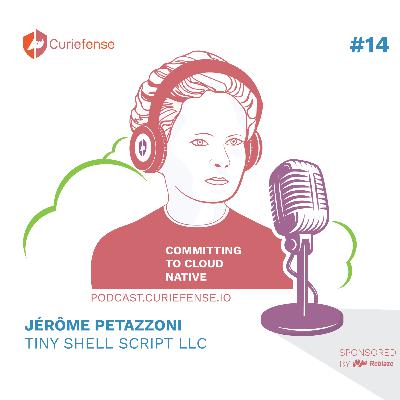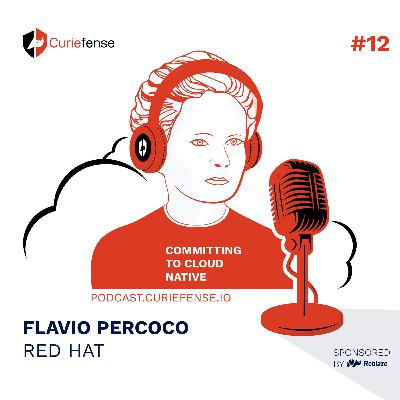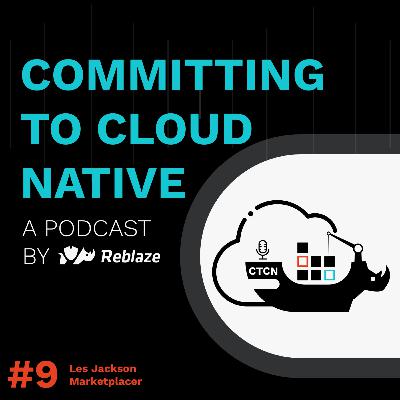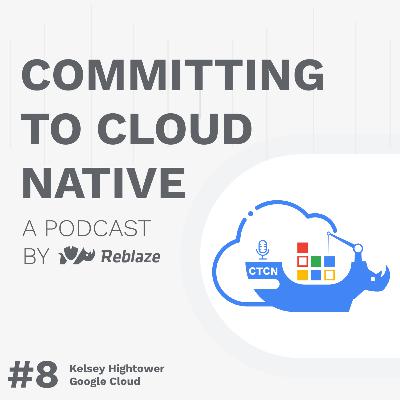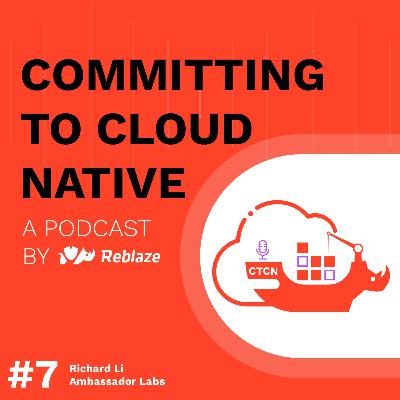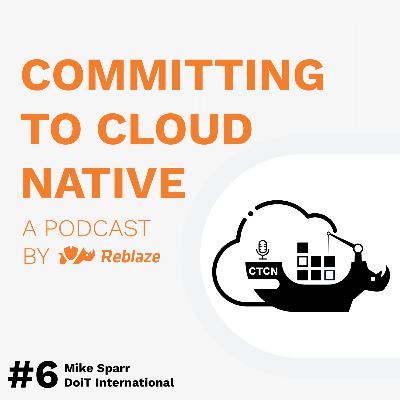Episode 10: Kubernetes, (Almost) Love at First Sight with Chris Ferreira
Description
Sponsored by Reblaze, creators of Curiefense
Panelists
Justin Dorfman | Richard Littauer | Tzury Bar Yochay
Guest
Chris Ferreira
Show Notes
Hello and welcome to Committing to Cloud Native Podcast! It’s the podcast by Reblaze where we talk about open source maintainers, contributors, sustainers, and their experiences in the Cloud Native space. Today as our guest, we have Chris Ferreira, who is the Principal Engineer and Architect for the WebEx Platform at Cisco. Chris tells us how he started out in culinary school and ended up in the IT world, working in startups on the front end and the back end, working for Microsoft, and now Cisco. He shares the story of his first day at Cisco, the deal he made with his teammates, and the amazing results. We learn how he became a Product Advisor for Curiefense that started when he met Tzury, and what transposed after he drew his ideas on a napkin. Also, Chris explains the methodology behind the “Four Knows” that he believes the tech industry gets best. Download this episode now to find out so much more!
[00:01:31 ] We hear Chris’s unorthodox background and how he built his career.
[00:05:54 ] Chris tells us about getting introduced into Kubernetes and becoming a code contributor to Istio in a pretty big way.
[00:12:24 ] Justin wonders what was it that made Chris want to leave Microsoft to go work at Cisco.
[00:14:25 ] Chris shares his story about his first day of work at Cisco and what escalated from that day on.
[00:17:13 ] Justin asks Chris if he would classify Cisco as a hybrid architecture.
[00:18:31 ] We hear a great story from Chris when he met Tzury in London right before COVID.
[00:24:31 ] Chris shares Cisco’s strategy in the Cloud space.
[00:29:30 ] Chris talks about how layers of software add complexity and he explains what he does.
[00:32:40 ] Tzury wonders why tech is the pioneer of this open source phenomena and Chris explains the methodology of the “Four Knows.”
[00:33:55 ] Tzury asks Chris if there are features or capabilities that he would love to see in Curiefense for Cisco.
Quotes
[00:05:56 ] “And at the time, Kubernetes was a whisper in the background.”
[00:06:06 ] “But, shortly after that I got introduced to Kubernetes and I don’t want to say it was love at first sight, but it was pretty darn close.”
[00:07:14 ] “The service mesh wasn’t really a defined term.”
[00:08:24 ] “And the response I got was no one’s ever moved a multi-billion-dollar AR business into microservices. He was probably correct, I’m not gonna lie, but like I said before, I’m pretty stubborn.”
[00:08:53 ] “And we started tinkering with the Linux containers doing code check-ins and doing things in the Kubernetes infrastructure, and implementing the Istio service mesh with the Envoy Proxy, handling communication paths and so on and so forth.”
[00:12:32 ] “However, an opportunity came over here in Cisco and it was like look, we want to run, not just in one cloud, we want to run in every cloud.”
[00:14:01 ] “They were building out data centers and geographic expansion would take months to do, to just stand up a single data center.”
[00:14:59 ] “I feel everyone should have skin in the game. If you don’t have skin in the game, then why trust the person?”
[00:15:21 ] “I don’t want to be building physical data centers, especially with the VM based infrastructure.”
[00:15:44 ] “We went down from a 6-7-month timeframe down to right around 60 minutes.”
[00:16:20 ] “We put the right tools in place that we could kind of track our capacity in a better way which allowed us to do that expansion so quickly.”
[00:21:43 ] “WAF doesn’t have to be this overbearing heavy component that you have to run into your infrastructure that adds extreme amounts of latency and it can become a security filter in the entire communication path.”
[00:24:43 ] “Cisco’s strategy in the cloud has been strategic, right, that you see certain acquisitions that have been done.”
[00:30:36 ] “For example, everyone has Android and iOS phones. iOS phones from a hardware perspective are significantly underpowered here too, the specs you see in the Android device. But for some reason, iOS destroys Android in those benchmark cases.”
[00:31:35 ] “Cloud Native has been one of the critical pieces to getting some of the things we have done recently, and it has allowed us to do so much more than we ever have before with so much less.”
[00:31:50 ] “The open source community is just so incredible.”
[00:32:49 ] “I always come back to the methodology that someone told me a couple of years back that there’s the four knows, and I think that the tech industry gets it the best. You know what you know what you don’t know, sometimes you don’t know what you know, and there are definitely cases where you don’t know what you don’t know.”
[00:34:09 ] “So, security in Cisco is not a P1 or P2, it is a P0! And it’s really important that a company that does networking, that does hardware in certain ways, security is the fundamental base of everything that Cisco does.”
Links
Cloud Native Community Groups-Curifense
Credits
- Executive Produced by Tzury Bar Yochay
- Produced by Justin Dorfman
- Edited by Paul M. Bahr at Peachtree Sound
- Show notes by DeAnn Bahr at Peachtree Sound
- Transcript by Layten Pryce
Transcript
Chris [00:02 ]: Shortly after that, I got introduced to Kubernetes and I don't want to say it was love at first sight, but it was pretty darn close. I really liked the simplicity. I'm a very simplistic person. If it's over-complicated and over-engineered people just didn't understand the problem well enough, in my opinion. So when I looked at Kubernetes, I was like, okay, just something simple, you pass it in, you execute, it dies. That's the way things should be looking like.
Richard [00:28 ]: Hello and welcome to committing to Cloud Native, the podcast where we talk about the confluence of open source and cloud native infrastructure. Our panelists today are Justin Dorfman and [inaudible 00:38 ] and they're going to have an awesome conversation, I really enjoyed listening to it, with Chris Ferrera. Chris is joining us today from Austin, Texas. He's the principal engineer and architect for the WebEx platform at Cisco and I really hope you enjoy this conversation. Take it away, Tzury.
Tzury [00:56 ]: Hell


